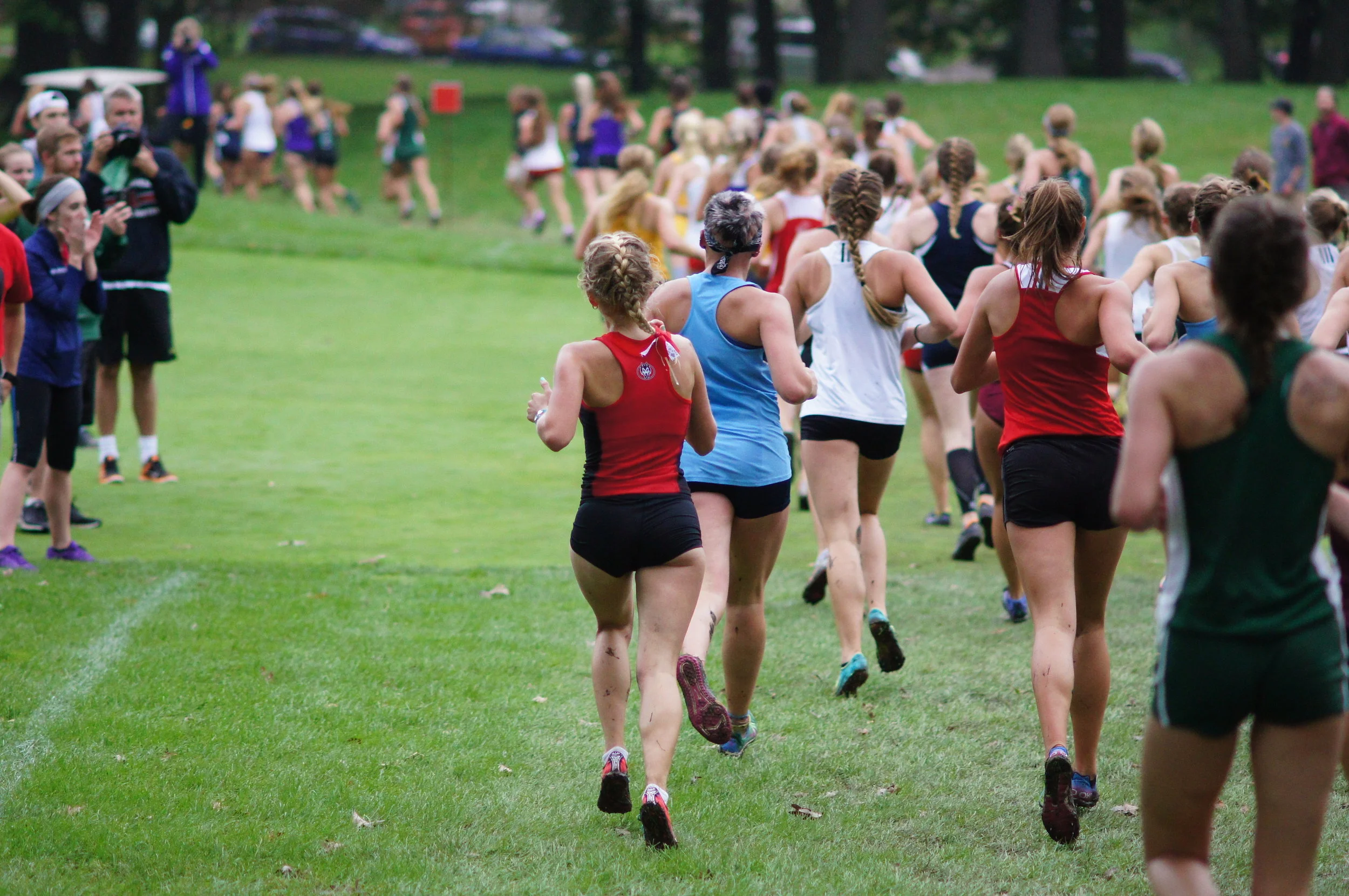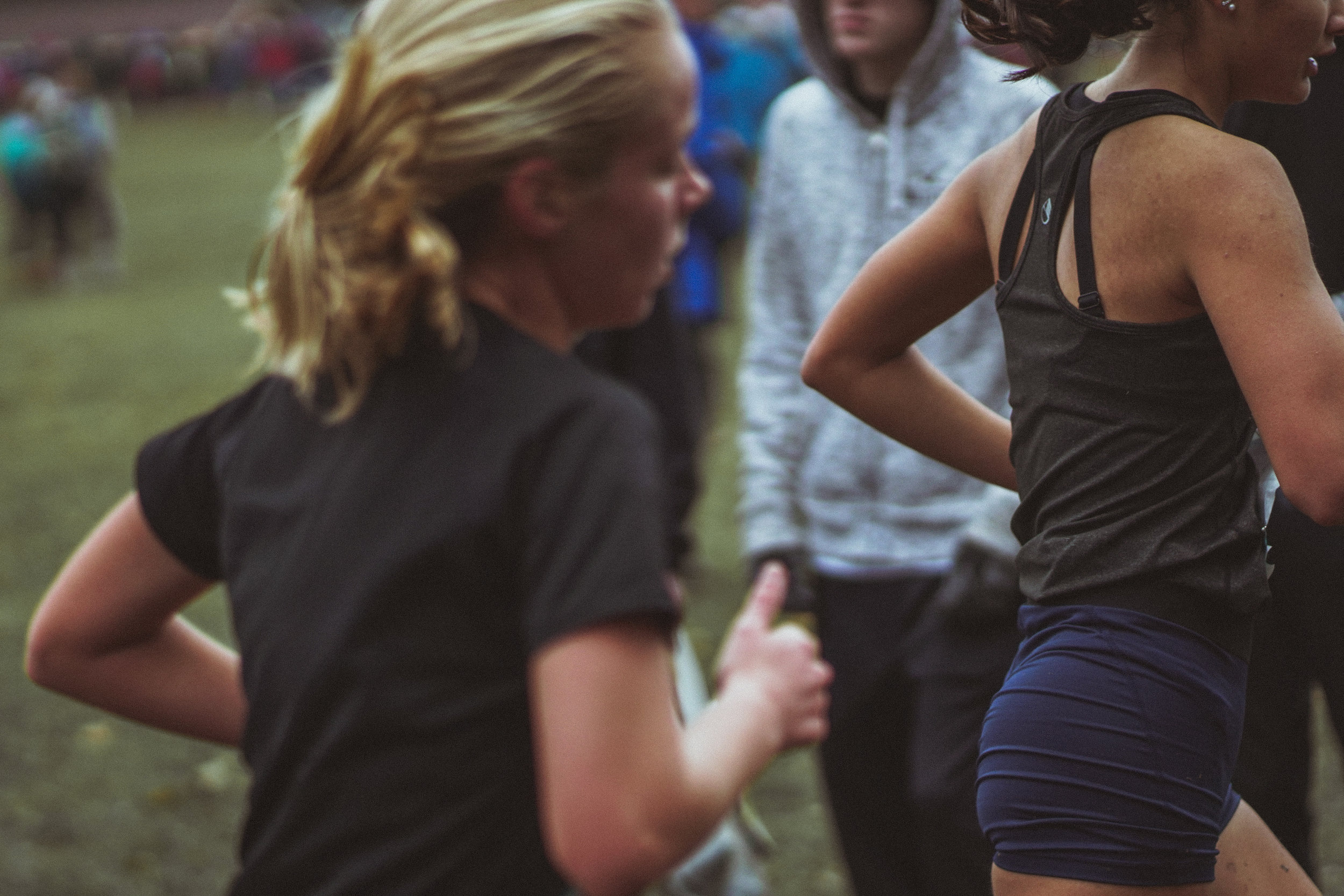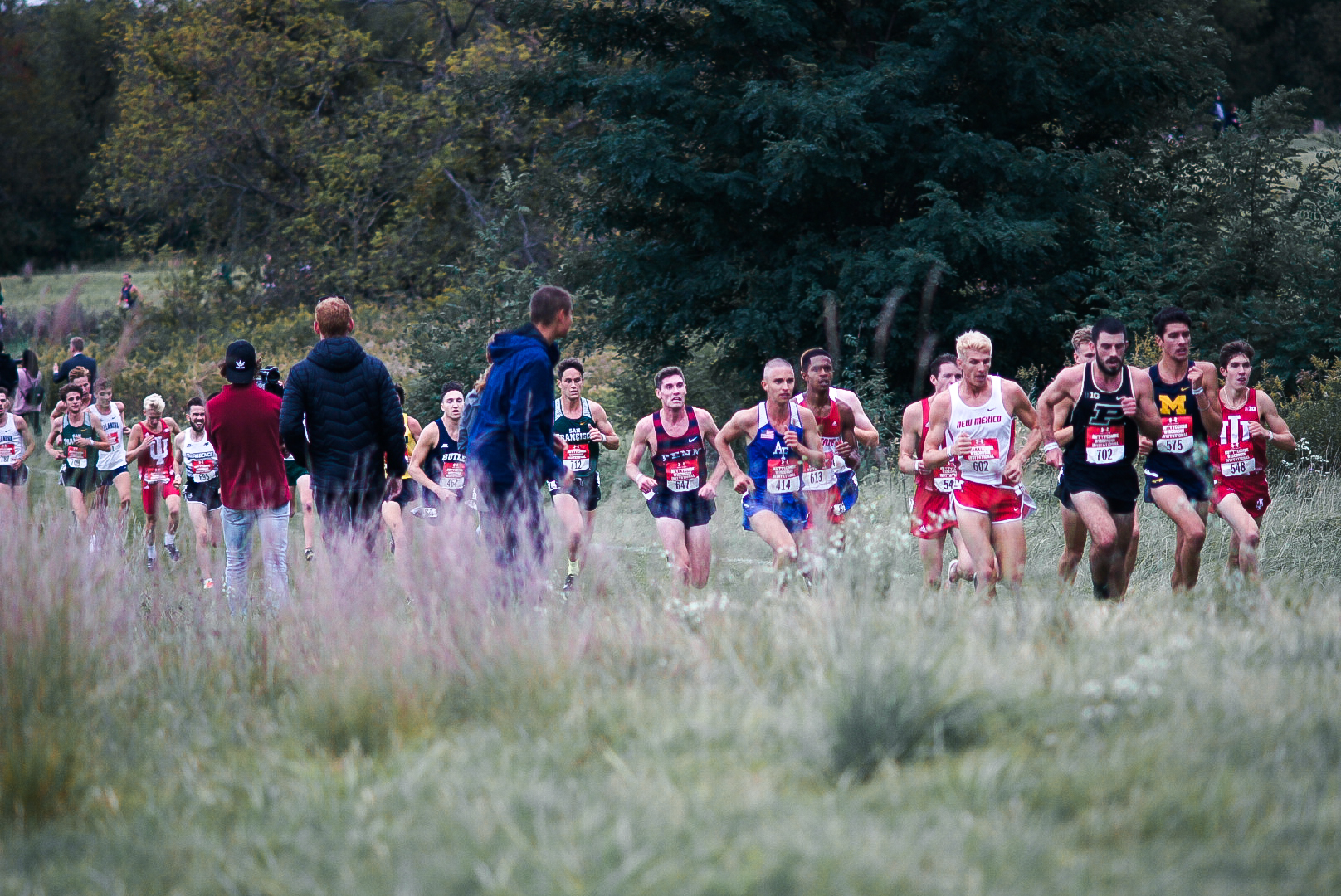The best is yet to come.

I wrote the article “When to Let Go” when I was depressed, anxious, and getting chronic headaches painful enough to make me see life through a lens that showed all rain and no sunshine. I had just about had it with running. I talked about the tremendous pressures of the sport and the toll they can play on destroying mental and physical health under certain circumstances. I wanted to help people, so I included the parts of my story I thought were most relatable and would reach people about the things they were afraid of talking about. But like every story, there was more to it. I left something out because I underestimated its relevance to you all while simultaneously being afraid of what people would think. So while I did let some things go, I was also holding onto a problem that never should have happened in the first place.
In the midst of me writing this, Mary Cain published a video Op-Ed to the New York Times describing the physical and emotional abuse she faced while running for Nike. When I reached the part of the video where she began talking about losing her period, I clicked pause. Then I clicked play again and then pause and then play again until I finally listened to what she had to say. She lost her period for three years. I felt very sad for her and sad because I realize how big this problem really is. It’s not my problem or Mary’s problem or a professional female distance runner problem. This is our problem. I feel completely and consumably empathetic towards this issue and the women struggling with it. There is more to my original story than even this, but here is the story of how I got my period back after losing it for three years too long.
In the fall of 2016, I lost my period and was not overly concerned with it until this June when I went to get my physical that I needed for a new job. When the doctor asked about my period, I told her. She had the nurse take my pulse and blood pressure four times. She wanted to make sure. My resting heart rate was 40 beats per minute. That is slow, but the reason that it’s so alarming is because amenorrhea (absence of a period), combined with a low heart rate is dangerous. The doctor told me to sit down, which made me nervous, because when a doctor tells you to sit down it’s literally never for anything positive. She said that I could have collapsed and died, and that she was surprised I hadn’t blacked out recently. She said to immediately stop running and doing any forms of exercise. She sent me to the hospital to have an EKG done on my heart and a blood panel checking for a thyroid disorder.
I was so shocked. I felt fine. Everything she told me put the situation into perspective. I’m used to being fine. I thought that maybe for someone who exercises regularly and eats healthy, I shouldn’t feel so exhausted all of the time. I felt like I was always tired, always stressed, and just wanted to give my body a rest. The EKG came back showing that my heart rate was slow but normal, while the blood work showed no indication of any of the disorders it tested for. So, I went home and tried to figure out what I was going to do.
I got an appointment with a reputable nutritionist, a remarkably clever lady who knew exactly when to be kind and when to be assertive. She told me that the complications associated with amenorrhea are extremely serious. Every time a girl doesn’t get her period, her bones thin and increase her risk for fractures, breaks, and other related diseases like osteoporosis. In addition, the longer the time span they miss their period for, the stronger the chances are that they will be infertile if they want to have children. Every month matters. I remembered her response to my slow heartbeat: “Your body is essentially slowing your heart down because it doesn’t have the fat stores to beat at a regular rate.” The way she was describing my condition made me change the way I viewed health. There is a difference between being skinny and being healthy.
I did what I had to do, and I did it fast. Absolutely no running and nearly no exercise for two months (I did play one riveting tennis game on the fourth of July). I ate my fats: olive oil, avocado, butter, milk, sunflower butter, and cheese. I made it my life’s mission try as many different ice cream shops with friends and family as I possibly could. I gained 15 pounds in less than two months. I was quite sad. I just felt bigger, slower, and in need of new pants. And worst of all, my period did not come back. I felt like I was losing in every way. Running had once again become my happiness and outlet stress; what was I supposed to do? My gynecologist was getting concerned that I still did not have my period and prescribed me a medication that contained the hormone progesterone. It was supposed to test if I was capable of ovulating and cause a bleed that could possibly kickstart my cycle, eventually giving me a regular period. It was not natural or ideal, but it was a last resort. I picked up the medicine and discovered that it contained peanuts, which I would have gone into anaphylactic shock and likely die if I consumed. I hastily brought the pills back and drove 40 minutes the next day to a pharmacy that makes custom medications. I bought the medicine and went home. I was about to take the medicine before bed. I got my period right before I opened the bottle. I cried.
I looked back at the situation and tried to figure out exactly how I got my period back. The major causes of losing your menstrual cycle are extreme stress, restrictive eating, and overtraining. I had to work on all of these things, and it was dreadfully hard for me because I am about as type A as they get. I had to find the calmness in the simple aspects of life, and trust that everything would work out with time. As far as eating goes, I forced myself to fully let go of any distorted behaviors I had due to my need to be in control. It seems ironic, but by being less restrictive, I actually was in more control of my life, instead of letting distorted eating control me. When I told the nutritionist what I ate in a typical day, she said it was very healthy and would have been fine for an average person, but female distance runners are not at all average. The number of calories and fat we require to have a regular menstrual cycle and train are far beyond what you would assume. At first, the more I ate, the hungrier I became. I ate more food during a day of zero activity than I used to in a day with a 10-mile run and weight training. I stopped exercising. Once I got my period back, I gradually eased exercise back into my routine, eating more food the more I ran. Two very weird things happened. For the first time in my life, I didn’t care how much I weighed and how fast I was. For years, I was thinner and faster, but now I am stronger and healthier. I will never try to make myself smaller again, try to take up less space, and try to be a size I am not meant to be.
When I see very thin girls running, I feel sadness, not envy. I feel sad that their hole was darker, deeper, and harder to get out of then mine. I feel like maybe they are trapped and need a hand. I don’t know what to say, so this is my way of communicating that I am willing to be a listener to anyone. It is my way of showing others that they are not at all alone.
For any female not getting their period because of running: you are in survival mode. As much as you think that you are fit and healthy, in a way, you are the opposite. Our bodies tell us when something is wrong through different signals: pain, tingling in the feet and hands, headaches, or dizziness. What we forget is that the absence of certain functions are also signals. Not getting your period is a message from your body that it is not happy with you. It wants you to start living life to your potential instead of just existing. If your main problem is needing to gain weight, I promise that you will not hate your body once you reach your optimal weight. If your problem is over exercising, I promise that you will enjoy your time off because it offers an opportunity to do things you didn’t have time to before (think flower gardens) If your problem is the extreme stress, I promise that there is something else in the world that calms you, you just have to go out and find it.
Since the time I lost my period in 2016, I saw many doctors for various reasons, and the answer I got to my question was always different but conveyed the same message. My male neurologist told me it was very normal for female runners to not get their periods. My male pediatrician told me that it was fine that I do not get my period because “I am too young to have kids anyways.” No one seemed to understand. One of the fundamental parts of what is means to be a woman is getting a period. I felt like my identity was blurred with who I wanted to be and who I was. It wasn’t until I had a team of females (a pediatrician, a gynecologist, and a nutritionist) that I realized the severity of my problem. There is nothing wrong with you or me or your friend or your sister or your mother or your aunt. There is something wrong with running culture and the horribly unrealistic expectations we have for female’s bodies. And just because something is “normal” does not at all mean it is okay.
The reality is that female bodies are ever changing, continually growing, should have fat on them (not can, should), and require a monthly period for strong bones. Mary Cain said, “we need more women in power” and questioned how her story could have been different if she was surrounded by female professionals rather than males. And while any male coaches I have had before have in no way contributed to my own issues, the fact that so many other females have the same problem shows that there is an underlying mechanism facilitating this dangerous situation.
It's so easy to tell someone to run less, stress less, and eat more. It’s harder to empathize with someone and understand that the process to getting your period back is much more difficult than what it appears to be on the surface. I can only say from my own experience that it is worth it. It’s time to collectively shift our values from being thin to being strong. Make the new image of a female distance runner represent health, strength, and relentlessness. I know that because of what I did, I let my body become what it is naturally supposed to me. And because of this, not in spite of this, I have not run my best times yet. My best is yet to come. So is yours.
- Nicole Rizzo (@_nicolerizzo)




